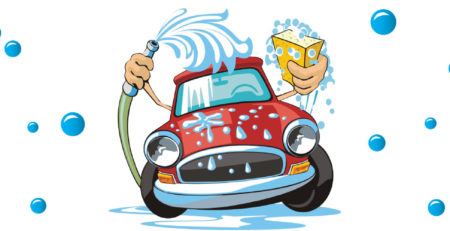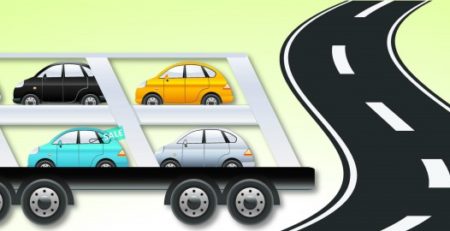Open Car Shipping vs Enclosed Car Shipping
Even if this is your first time shipping a car, we bet you have already figured out or guessed that there are several different types of auto transport trucks on the road today, and not all of them provide the same type of services. When driving around you will often see both types: the more obvious open carriers, and the harder to pick out enclosed carriers. Both types of carriers will provide you door-to-door auto transportation as their standard method, but the protection that your vehicle gets from an open carrier as opposed to an enclosed carrier will be much different. Carrier availability will depend very much on where you’re shipping from and to and also the time of year and what type of vehicle you are shipping. These different factors can play a major difference in the prices that you pay and the services that you receive.
The type of auto shipping carrier truck that is the most common on the road today is what is known as an open auto transport carrier. Open carriers are the ones that you see that look like someone played a crazy game of car Tetris to load them onto the back of the truck. Since these are the most common they will often offer the best prices and be the ones that are easiest for routes to be worked out with. Because of these two factors they are often the cheapest for you and offer the best bet on saving some money on your car shipping. As the standard shipping method of an entire industry, it’s not all that surprising that it would be cheaper and faster than the alternative.
The other choice you have is to use enclosed auto shipping services and these are exactly like the name sounds. A truck that can cover and house your car inside it, as opposed to it being open and free for all to see. Enclosed carriers aren’t as common as open shippers, namely because their services aren’t required nearly as often as an open carriers’ is. Open carriers are standard in the industry because they’re so much cheaper than any of the alternatives. Enclosed transportation is used mainly by people who need transportation services for really rare, nice or expensive vehicles (or a combination of all three), as enclosed transport trucks help to protect the vehicles they are hauling much better than open services. Enclosed transportation literally takes place on a truck that encloses all the vehicles in a trailer, to protect them from the elements.
The main difference between open and enclosed, aside from the price, is the level of protection they give the vehicles that they transport. Though open carriers expose the vehicles that they ship to the elements, they do offer some basic protection, along with the fact that you won’t see any mileage or other wear and tear put on the vehicle’s engine. Most problems, if any, that come with open transport, will be cosmetic in nature – dents, dings, and scratches from spending five or ten or fifteen days on the road. Enclosed carriers prevent a lot of those minor dings and dents by putting walls and a roof over the vehicles. Damage is fairly rare on an open car shipping carrier anyway, but there are some vehicles where even the risk of damage isn’t worth it, and it would be better to spend a bit more money to ensure no damage will be done to the vehicle. Most regular cars, though, can be shipped via a standard open carrier, since their values are still fairly low (remember, cars tend to depreciate in value before they start appreciating, and not all vehicles appreciate in value) and damage, if any, will almost always be minimal and cosmetic in nature.
If you’re interested in shipping your vehicle, you can get multiple free quotes to ship it by filling out our free online quote request form. We look forward to talking with you and helping you find the best method and price for getting your car shipped to where it needs to go!










Comment (1)
[…] you are going from New York to Florida or Florida to California, an enclosed auto transport carrier will get your classic car there in one piece. The solid wall exteriors of enclosed trailers protect […]
Comments are closed.